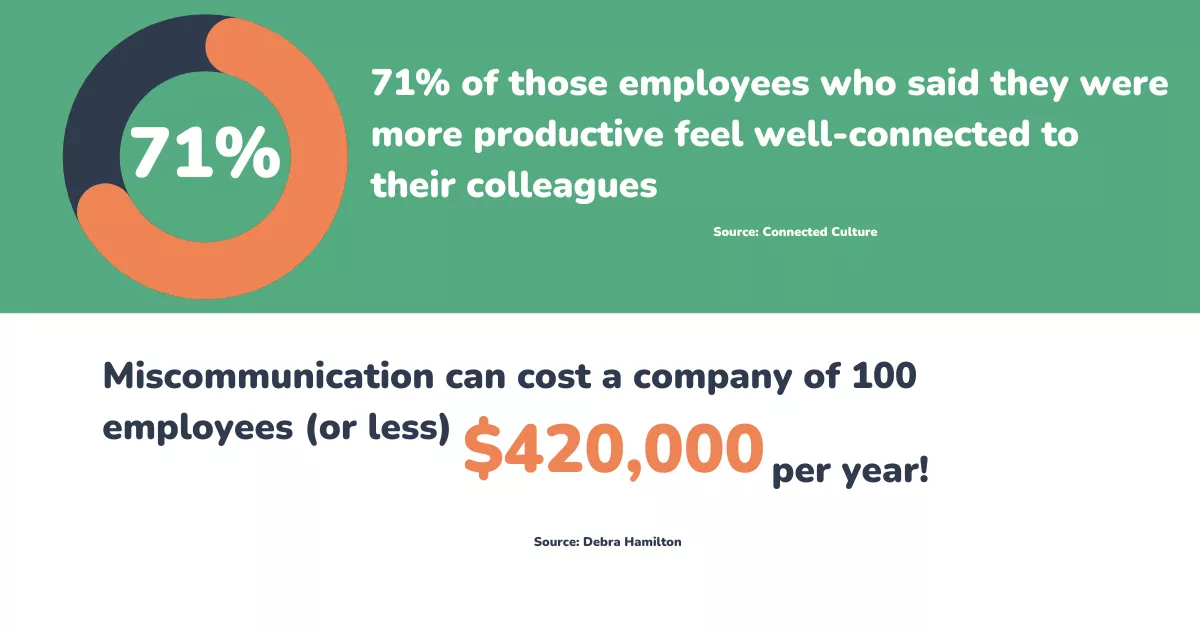Understanding the Value of Informal Employee Exchanges in the Workplace

It is impossible to emphasize the importance of informal employee interactions in the workplace. These interactions allude to the commonplace casual conversation that employees engage in with one another while at work. These interactions, which frequently have little to do with work, are crucial for creating lasting bonds between employees and promoting a sense of belonging inside the company. So how does it help?
Building Relationships
Employee relationships are created through informal interactions among peers. These interactions enable employees to connect on a human level beyond the confines of their respective roles and responsibilities. Positive relationships between employees increase the likelihood that employees will feel supported and valued at work. Increased job happiness, productivity, and employee retention may follow from this.
Improve Collaboration
Informal workplace conversations also aid in the formation of cooperative working relationships. Employees are more likely to be open to working together and exchanging ideas when they get along well with their coworkers. This may result in improved problem-solving and teamwork, which subsequently supports the interests of the entire organization.
Contribute to Strong Workplace Culture
Informal interactions among employees foster a sense of belonging in the workplace. Employees are more likely to be engaged and motivated in their work if they have a sense of connection to their coworkers and the organization as a whole. A positive workplace culture where employees feel appreciated, respected, and supported can also be influenced by this sense of community.
Improved communication
Informal interactions among employees aid in enhancing workplace communication. Employees are more inclined to talk clearly and honestly when they get along well with their coworkers. This may result in a more open and cooperative working culture where problems are dealt with quickly and successfully.
While they may seem insignificant, these informal exchanges play a vital role in shaping workplace culture, fostering collaboration, and improving employee morale. They are a great tool for nurturing these values for organizations that are constantly seeking ways to increase productivity, reduce turnover, and improve employee engagement.
How to Foster Genuine Informal Employee Exchanges in the Workplace
It is not enough to simply have these exchanges in the workplace; they must be genuine to reap the benefits. Genuine informal employee exchanges occur naturally and are a reflection of the relationships and culture that exist within an organization. Here are some ways you can promote informal exchanges between employees.
Encouraging Face-to-Face Interactions
Encourage face-to-face interaction as a means to promote real informal employee conversations. Because of the prominence of remote work and online contact, it's simple for people to grow apart from one another. In the workplace, encouraging face-to-face encounters can help forge relationships and foster a feeling of community. This can be done by setting up areas for employees to congregate and mingle, like a break room or common area.
Creating Opportunities for Socializing
By providing opportunities for socializing, organizations can also promote genuine informal employee exchanges. These can include social gatherings, team-building exercises, or even informal luncheons. These activities can foster teamwork among employees and help them form relationships. They also offer employees an opportunity to take a break from their jobs and unwind.
Promoting a Culture of Openness and Collaboration
Another efficient strategy for encouraging genuine informal employee exchanges is to support a culture of openness and collaboration. Employees are more inclined to talk casually with their colleagues when they feel comfortable discussing their thoughts and opinions. This can be accomplished by promoting open communication and developing a welcoming workplace environment. Employees are more willing to participate in sincere informal interactions when they feel appreciated and valued.
Leadership
In order to promote genuine informal employee interactions, leadership is essential. The value of developing relationships and fostering a positive workplace culture is demonstrated by leaders who actively participate in casual conversations with their team members. Open informal discussions can grow in an environment where leaders take the time to listen and engage with their employees.
Training
Organizations can also offer employees training and resources to assist them to improve their relationship- and communication-building skills. These may include seminars on relationship development, conflict resolution, and effective communication. Organizations can develop a workplace culture that supports and promotes these connections by giving employees the skills and resources they need to participate in authentic informal exchanges.
Organizations can foster a workplace culture that values and promotes these exchanges by fostering face-to-face encounters, giving chances for socializing, fostering an atmosphere of openness and collaboration, setting an inspirational example, and offering resources and education. Employee engagement, productivity, and job satisfaction are all likely to increase when they feel a sense of belonging to the company and to one another.
The Connection between Informal Employee Exchanges and Organizational Culture
Genuine, informal employee interactions at work can either be encouraged or discouraged by an organization's culture. Genuine informal interactions between coworkers can be fostered by an organization's excellent organizational culture, which places high emphasis on communication, teamwork, and inclusivity. Employees can feel at ease discussing their thoughts and opinions with their coworkers since this type of culture encourages trust, transparency, and collaboration. Moreover, silos can be broken down and cross-functional communication can be encouraged by an effective company culture that promotes cooperation and collaboration. More effective problem-solving and creativity may result from more knowledge sharing and departmental collaboration.
Conversely, a hostile organizational culture that promotes hierarchy, rivalry, and individualism can inhibit casual employee interactions. Employees may become disengaged from informal conversations if they believe their thoughts and contributions are not recognized in this type of culture. Employees may also be reluctant to express their thoughts and opinions if there is a culture of mistrust or fear, which will prevent collaboration and innovation.
Why OrangeHRM?
A fully equipped HRIS can help you foster the open and healthy organizational culture that firms look to achieve. With tools like the OrangeHRM Buzz, the built-in social media platform on OrangeHRM, organizations can help create a place a transparent organization where employees can interact openly and freely with their peers or superiors and share their thoughts, celebrate their successes and achievements, recognize their peers or superiors for their hard work by giving kudos and so much more. See how OrangeHRM can help you improve your organizational culture by contacting us today!
